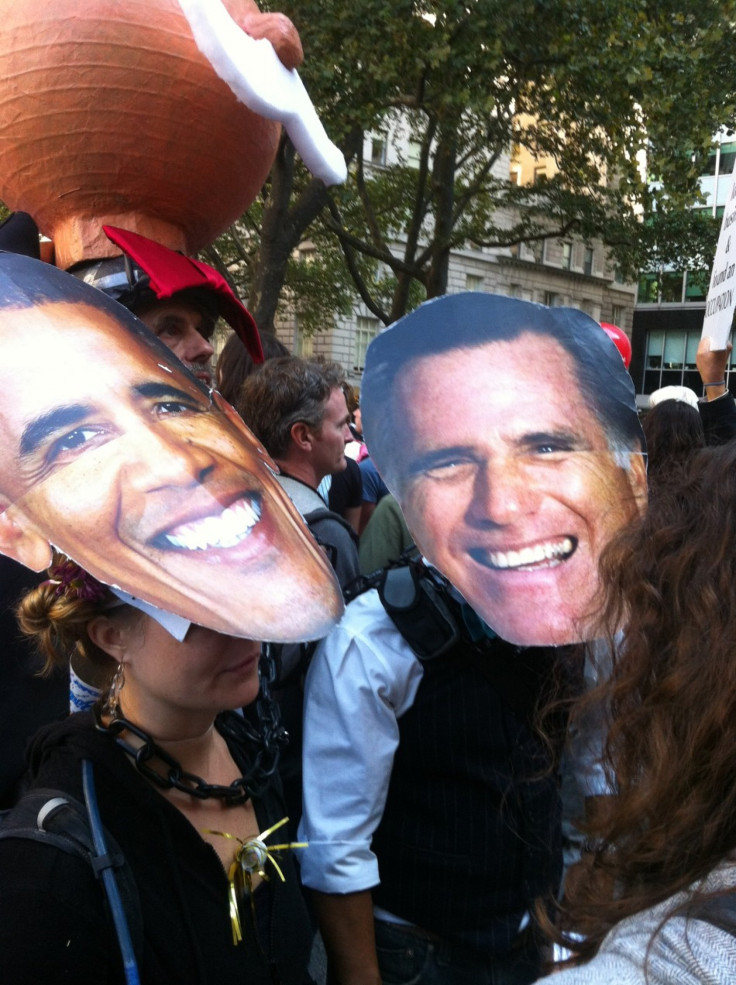Overwhelming Majority Of Americans Oppose Corporate Corruption, So Why Aren’t Political Parties Listening?

A year ago, protestors gathered in New York City’s Financial District kicking off Occupy Wall Street, a grassroots movement protesting economic inequality, greed and corruption.
With a rallying cry of “We are the 99 percent,” the protests quickly grew in size and spread to cities across the country. Ultimately, Occupy Wall Street has failed to gain the political success of its antipodean, the tea party movement.
While no political candidates are running under an Occupy Wall Street label, the protests left an indelible impression upon the American psyche. A new anti-corruption majority has emerged, and it has the potential to reshape American politics on the federal, state and local levels.
Labaton Sucharow, a law firm where one of us works, recently commissioned an independent national survey to gauge public opinion on corporate ethics and wrongdoing, the impact of corporate misconduct on the economy and the government’s role in its repair. The results of this poll provide important insights into our nation’s past economic problems and suggest the emergence of an influential political majority -- one that echoes the concerns voiced by the Occupy protestors.
According to the survey, 54 percent of Americans have personally observed or have firsthand knowledge of wrongdoing in the workplace, 18 percent think their employers’ ethics take a back seat to the bottom line, and 64 percent believe that corporate misconduct played a significant role in causing the recession. Eighty-one percent think the government hasn’t done enough to stop corporate wrongdoing, and, worse, 77 percent believe politicians favor corporate over constituent interests.
If this isn’t a wake-up call, consider that 61 percent reported that a candidate’s commitment to rooting out corporate wrongdoing would significantly influence their vote in November. And a majority are willing to stake their wallets on it. Sixty-three percent want the government to allocate more money to financial regulators and law enforcement authorities to combat corporate wrongdoing.
To borrow a popular line from classic movie “Network,” Americans are mad as hell and are not going to take this anymore. Good men and women are no longer willing to look the other way or do nothing to stop corporate malfeasance. A startling 84 percent reported a positive view of people who report illegal or unethical conduct, and 83 percent say they would "blow the whistle" themselves given protections and financial incentives such as those offered by the SEC Whistleblower Program -- a promising new investor protection initiative that announced its first monetary award last month.
Taking an aggressive stance on corporate corruption offers political candidates a path to victory, especially for those facing close races. Anti-corruption is popular regardless of geographic region, partisanship and socio-economic status. It’s one of the few political issues that play equally well in federal, state and local elections, and it’s consistent with Republicans’ law and order and Democrats’ progressive reform agendas. Voters don’t need to moderate other deeply held beliefs to buy into it. They can support aggressive enforcement of existing anti-corruption laws without compromising their stances on social issues, gun rights and personal liberties.
Fundamentally, an anti-corruption campaign builds on the basic American value of fairness.
History is replete with examples of political success won from such a platform. “Bull moose” candidate Theodore Roosevelt built his campaign around Americans’ disgust with widespread corporate chicanery, accounting fraud and stock watering. Woodrow Wilson campaigned and, later, through passage of the Federal Trade Commission Act, acted on the serial corporate crime that accompanied the rapid economic growth of the Industrial Revolution.
Not so in 2012. In the wake of the high-drama conventions, neither party has adopted a potent anti-corruption agenda. While many political candidates have detailed plans to fix the economy and can wax poetically about jobs, most have missed a crucial political issue -- that is, the egregious corporate wrongdoing that most Americans see as a significant cause of the current economic crisis.
If these candidates are reading this, their message should be simple and sincere: “My fellow Americans, never again will we allow illegal or unethical corporate conduct to bring our economy to its knees because my administration will …”
Occupy Wall Street sounded the alarm on corporate corruption, and the American public answered the call. Political and corporate leaders are on notice -- they must demonstrate a credible commitment to stopping corporate wrongdoing or line up at the local unemployment office.
Jamie Chandler is a political scientist at Hunter College and a political columnist and commentator for several national media outlets. Jordan Thomas, chair of the whistleblower representation practice at Labaton Sucharow LLP, is a former assistant director in the SEC’s enforcement division.
© Copyright IBTimes 2025. All rights reserved.





















